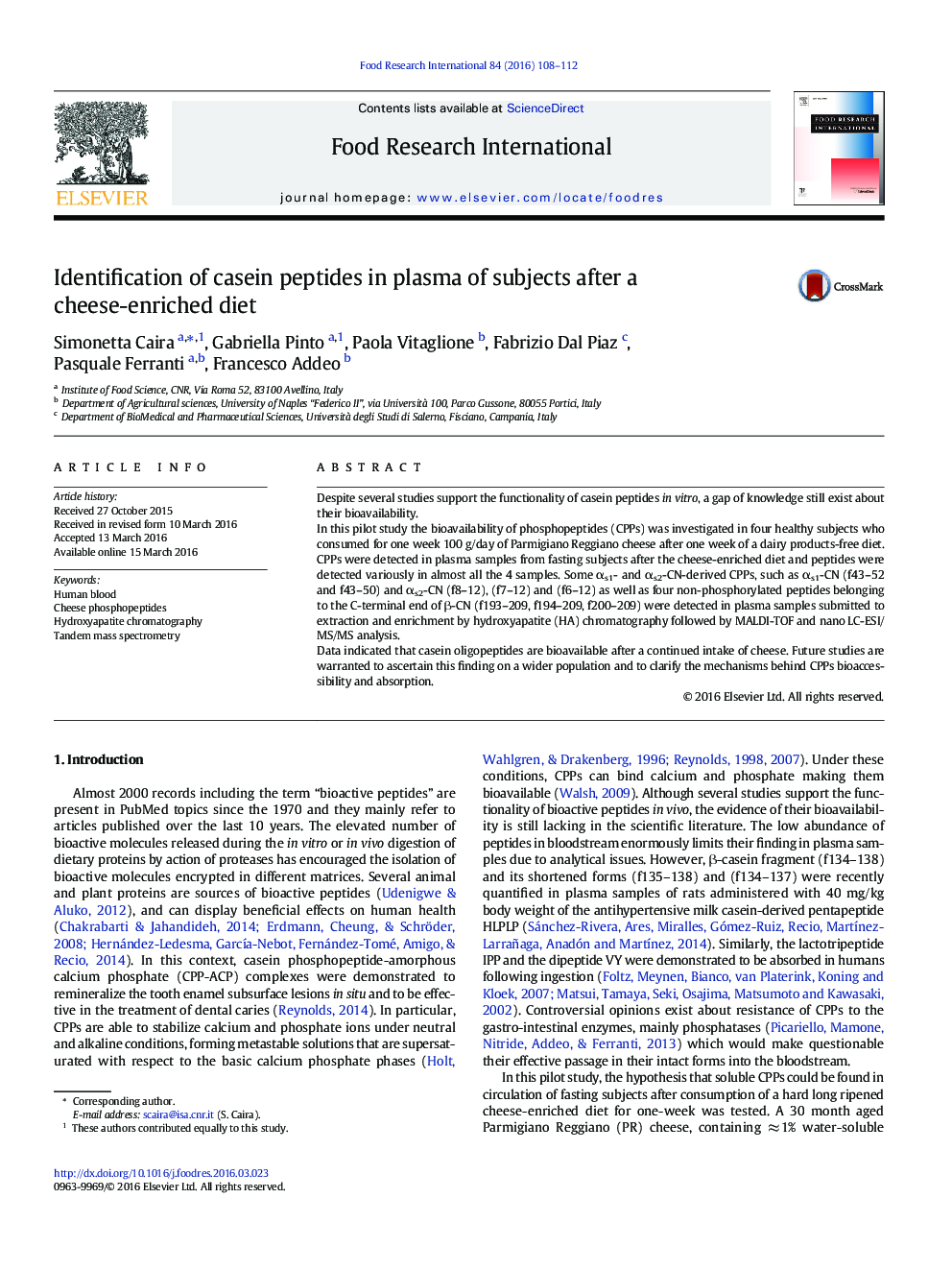| Article ID | Journal | Published Year | Pages | File Type |
|---|---|---|---|---|
| 4561154 | Food Research International | 2016 | 5 Pages |
•Enrichment of phosphopeptide by hydroxyapaptite-based chromatography from human serum;•First detection of specific casein peptides and CPPs in the blood stream persons after Parmigiano Reggiano cheese intake;•Characterization of bovine peptides detected in human blood by MS/MS analysis;•Tracking the origin of bovine peptides of human blood from the cheese source.
Despite several studies support the functionality of casein peptides in vitro, a gap of knowledge still exist about their bioavailability.In this pilot study the bioavailability of phosphopeptides (CPPs) was investigated in four healthy subjects who consumed for one week 100 g/day of Parmigiano Reggiano cheese after one week of a dairy products-free diet. CPPs were detected in plasma samples from fasting subjects after the cheese-enriched diet and peptides were detected variously in almost all the 4 samples. Some αs1- and αs2-CN-derived CPPs, such as αs1-CN (f43–52 and f43–50) and αs2-CN (f8–12), (f7–12) and (f6–12) as well as four non-phosphorylated peptides belonging to the C-terminal end of β-CN (f193–209, f194–209, f200–209) were detected in plasma samples submitted to extraction and enrichment by hydroxyapatite (HA) chromatography followed by MALDI-TOF and nano LC-ESI/MS/MS analysis.Data indicated that casein oligopeptides are bioavailable after a continued intake of cheese. Future studies are warranted to ascertain this finding on a wider population and to clarify the mechanisms behind CPPs bioaccessibility and absorption.
Graphical abstractFigure optionsDownload full-size imageDownload as PowerPoint slide
